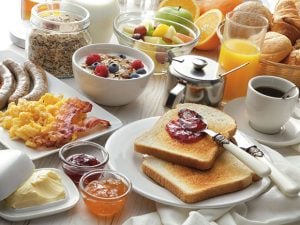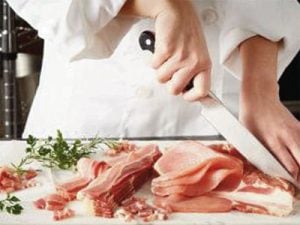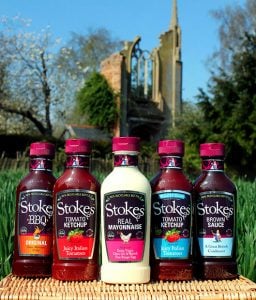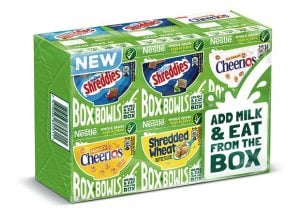Breakfast- “Wake Up and Smell the Profit”

“To eat well in England you should have
breakfast three times a day.”
W. Somerset Maugham
 It’s well known as the most important meal of the day, however, consumer ideas about what constitutes breakfast, and the where, when, why and how of eating it have changed significantly over the past couple of decades.
It’s well known as the most important meal of the day, however, consumer ideas about what constitutes breakfast, and the where, when, why and how of eating it have changed significantly over the past couple of decades.
Increasingly breakfast is moving away from being the first meal of the day consumed at home to one being consumed out of home, either as a relaxed sit-down affair with family, friends or colleagues or are rushed food on the go opportunity for the time poor consumer.
Often underrated and overlooked in the hospitality sector breakfast is a significant generator of extra revenue.
Kantar Worldpanel data shows that the breakfast category is back in growth once again, with eggs and cereal rising in popularity.
The total value of the breakfast occasion has grown during the past year to £11.6 billion.
WHO IS EATING BREAKFAST?
 As the cheapest meal of the day it does account for 28% of all eating and drinking ‘occasions’. and frequency sits at 6 times a week. And, as the UK population gets bigger, so too does the demand for food and drink for this key food and drink occasion. “Cooked breakfasts remain hugely popular with 75% of people kickstarting their day out of home with a fry up,” says Mohammed Essa commercial director at Aviko UK and Ireland. “With 70% most likely to order full English, it is an essential must have a menus. For caterers planning their breakfast menu our researchers found that the top three items consumers want in a cup breakfast are sausages and bacon (52%) followed by eggs (23%) and hashbrowns (18%).”
As the cheapest meal of the day it does account for 28% of all eating and drinking ‘occasions’. and frequency sits at 6 times a week. And, as the UK population gets bigger, so too does the demand for food and drink for this key food and drink occasion. “Cooked breakfasts remain hugely popular with 75% of people kickstarting their day out of home with a fry up,” says Mohammed Essa commercial director at Aviko UK and Ireland. “With 70% most likely to order full English, it is an essential must have a menus. For caterers planning their breakfast menu our researchers found that the top three items consumers want in a cup breakfast are sausages and bacon (52%) followed by eggs (23%) and hashbrowns (18%).”
Ellen Streatfeild, of Denhay Farms, comments, “We are always amazed by the number of premium food outlets serving up value bacon that has been imported from across Europe. Breakfast is the most important meal of the day, so why serve anything other than the best tasting British bacon? Too much focus is put on price over taste and welfare standards and that needs to change.”
DON’T FORGET THE SAUCES
 Stokes Sauces, which is famous for its range of delicious artisan sauces, is launching a brand-new line of ‘squeezy’ family-friendly, recyclable bottles for the food service industry.
Stokes Sauces, which is famous for its range of delicious artisan sauces, is launching a brand-new line of ‘squeezy’ family-friendly, recyclable bottles for the food service industry.
The quality condiment producer from Suffolk is taking on the big brands in the sector with its squeezy range and is releasing its famous Tomato Ketchup, Real Mayonnaise and Brown Sauce in the new format bottles.
Stokes is renowned for its ‘real food’ sauces and its belief that its high quality, delicious condiments can truly enhance meals. The company also prides itself on only using the best ingredients in its sauces, such as 200g of juicy, sun-ripened Italian Tomatoes for every 100g of Tomato Ketchup, or British free-range eggs and luxurious Greek extra virgin olive oil in its mayonnaise.
Stokes will use the same recipe in its squeezy bottles as it does in its iconic glass bottles and the whole range has been designed with ease-of-use and families in mind; the bespoke bottles have been made especially for Stokes and are easier to handle than those used by larger brands. It also demonstrates Stokes’ commitment to become a key player in the ketchup market.
Founder and Managing Director of Stokes Sauces, Rick Sheepshanks, said: “We offer a higher quality and better tasting range of sauces than the big brands, and now our award-winning ketchup, delicious mayonnaise and brown sauce will be much easier for people to enjoy.”
The new squeezy bottles are made from PET plastic which is 100% recyclable.
WHAT DO WE EAT FOR BREAKFAST… AND WHY?
Sales are up year-on-year on items like cereal bars (2.2% growth to £444.5 million), porridge (up 4.8% to £247 million) and marginally on ready-to-eat cereal (value of sales is up 0.7% to £1,318.1 million).
Sam Platt, the Vegetarian Society Cookery School Manager, said: “Kick-start the day the healthy way with nourishing bowls of muesli, porridge or bran flakes for a wholegrain hit. Add a sprinkling of berries to your cereals and offer fruit juice – not only are they one of your five-a-day, they’re also a source of essential Vitamin C, which helps with iron absorption. For protein, whip up some scrambled or poached eggs – and don’t forget to offer a cracking veggie fry-up too to keep all your customers full and happy.”
 Earlier this year Nestlé Cereals announced the launch of its new Box Bowls range – a six pack of Nestle Breakfast Cereal favourites that can be eaten straight from the box.
Earlier this year Nestlé Cereals announced the launch of its new Box Bowls range – a six pack of Nestle Breakfast Cereal favourites that can be eaten straight from the box.
Box Bowls offer six single-portion boxes of some of Nestlé Cereals best known classics – Shredded Wheat® Bite Size, Original Shreddies®, Frosted Shreddies®, Multigrain Cheerios®, Honey Cheerios® and Nesquik®. All that is left to do is to pour milk into the specially-designed bag inside the box, and grab a spoon for a tasty and convenient breakfast to be enjoyed at home, or on the go.
All elements of the box bowl are recyclable – from the specially designed inner bag that holds in moisture, to the unique cube-like outer carton.
Toby Baker, Marketing Director UK & Australia, Nestlé Cereals, said: “Consumer research tells us that Brits want more variety and convenience at breakfast time. Our new Box Bowls provide a tasty breakfast choice for almost every day of the week, pre-portioned and ready to eat straight from the box. “Box Bowls have also been designed to fit around ever busier lifestyles – they can be enjoyed at home, or while out and about. The toughest decision you’ll face is which one to choose.”
When it comes to food and drink choices, decisions are largely made based on health (28%) according to Kantar Worldpanel. Millennial consumers, accounting for 23% of all breakfast consumers, are especially seeking health benefits at breakfast – 253 million MORE breakfast servings they enjoyed last year were based on fulfilling this need. 190 million more were chosen based on being ‘more natural/less processed’.
When it comes to making healthy choices, breakfast cereals are most likely to be chosen, accounting for 34% of consumption. We are eating 5% more ready-to-eat cereals and 4% more hot cereals.
Consumers are eating more fruit (up 8.5%), porridge (up 7.4%) and eggs (up 2.7%), confirming the trend towards more ‘natural’ breakfasts. Eggs are certainly popular – cooked breakfasts WITHOUT eggs are eaten 2.2% less often this year. They are clearly an important component.
According to research by industry analysis’s NPD, much of the hospitality growth in visits will come from specific dayparts. Breakfast currently represents more than one in eight of the 11.36 billion OOH visits. NPD is forecasting breakfast visits will grow and +4.8% this year. So the demand is clearly there, breakfast offers not only great value to your customers but a great opportunity to add sales and increase profit margins!
TOP BREAKFAST TIPS
• Promote yourself. Make sure your breakfast offerings are visible, website, menu/table cards, newsletter, social media, get the message out!
• Prepare, and open early, make sure you cater for the early birds who may not have the time to sit down for a leisurely breakfast.
• Make sure coffee is good quality.
• Offer healthy options – people are more likely to eat healthily in the morning.
• Cater for those with allergies and/food intolerance.
• Stock high-margin products such as cereal, which can be up-sold with a broad selection of healthy toppings
• Be creative, consider a regional recipe, or promote provenance.
• Friday is a day of indulgence, so adjust offer accordingly with cooked breakfasts
• Don’t serve cold toast!
Nestlé Cereals – www.nestlecereals.co.uk
Stokes Sauces – www.stokessauces.co.uk
Denhay Farms – direct.denhay.co.uk
